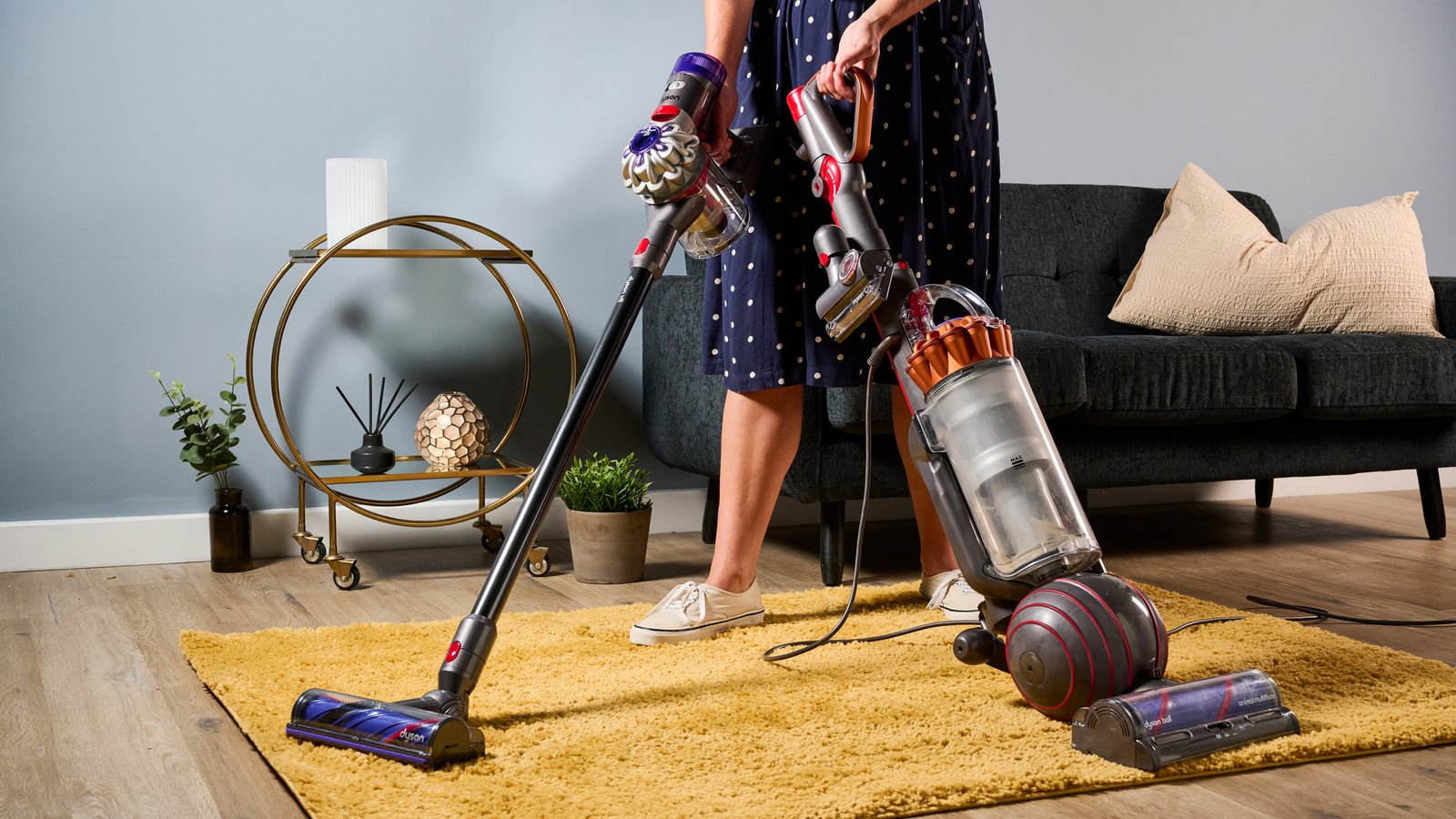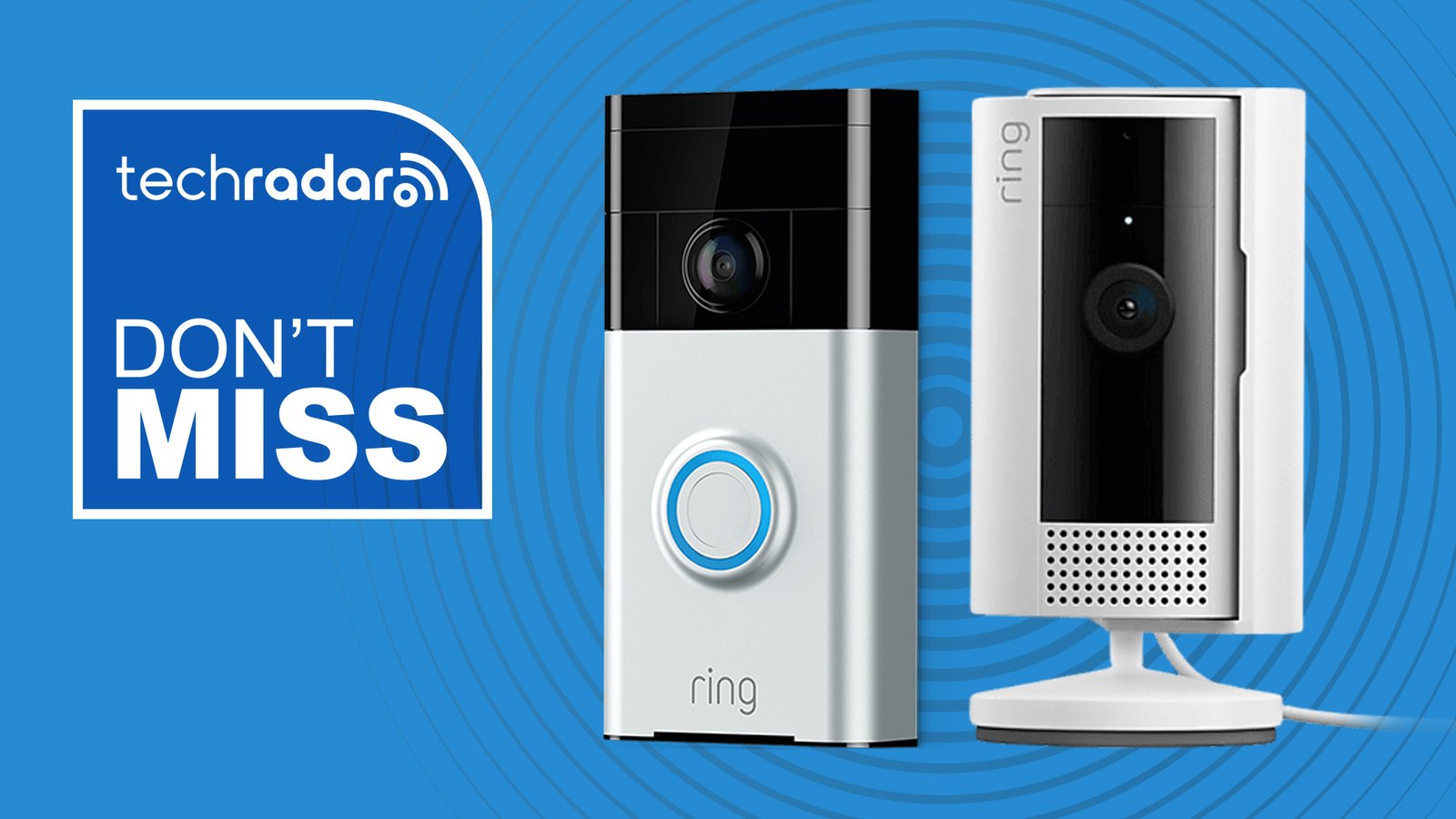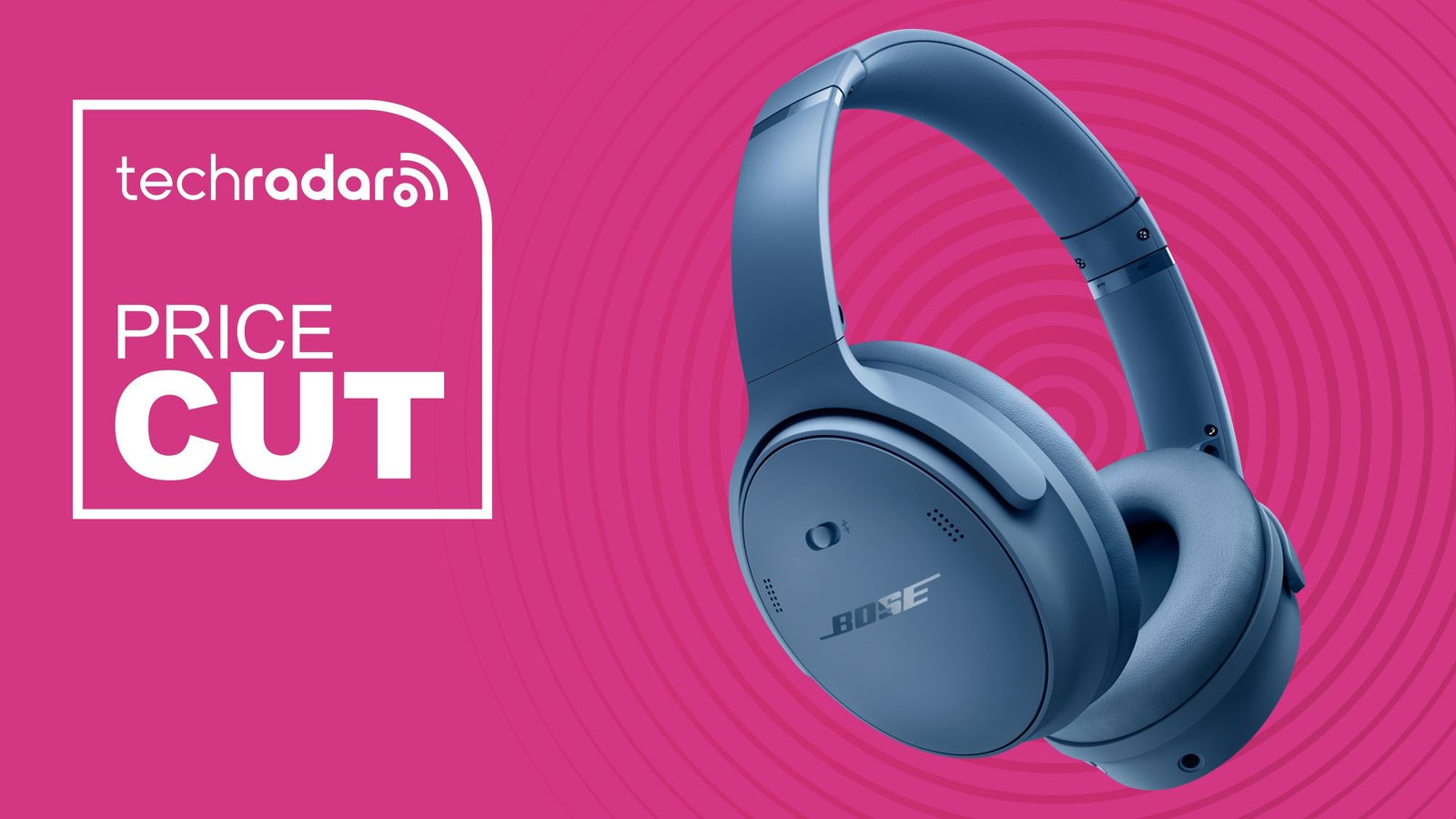Carpet is one of the hardest floor types to keep clean. Dust and hair gets caught in the fibers, where it will stubbornly remain unless you attack it with the right tools. A decent amount of suction power is only half the battle, too. I asked experts from four of the biggest vacuum cleaner brands for their top tips on what to look for in a vacuum for carpet – read on to learn what they had to say.
Once you’ve read their advice, head to TechRadar’s guide to the best vacuum for carpet for our top recommendations, or our general best vacuum cleaner roundup if you have a mix of floor types in your home.
1. Strong suction and a boost mode
On hard floor, all the dust and dirt sits on top of the surface, and as a result doesn’t require too much effort to suck up. Whereas on carpet, it settles within the fibers, and requires a decent amount of suction to remove. When it comes to deep-pile carpet, it can end up stuck a good way down.
“For carpets, a vacuum with varying power levels is a great option as it allows for adjustments to suction to suit the thickness of the pile,” advises Tom Akers, Product Training Manager at Miele.
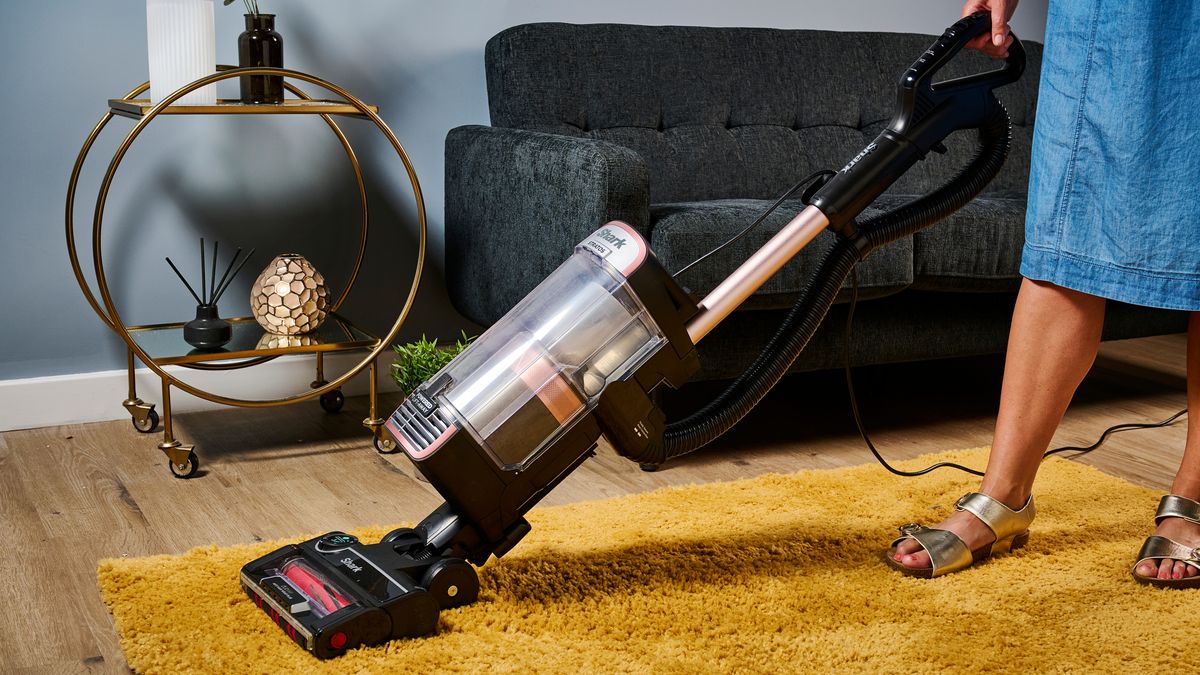
While cordless vacuums offer plenty of freedom of movement, a corded upright will almost always deliver more outright power. If you have a lot of carpet, you’ll generally get a deeper clean with an upright vacuum.
If you do opt for a cordless stick vac, look for one with a ‘boost’ mode that can be deployed when you need an extra bit of oomph. Although beware, this setting typically runs down the battery very quickly – use it sparingly.
2. An air intake slider
Strong suction is important, but too much suction and you won’t be able to actually push the floorhead across the carpet. That can be a particular issue with deep-pile carpets.
Some brands – Dyson for example – add an air intake slider to their vacuums’ floorheads. This can be adjusted to lessen the suction seal, so if the floorhead’s getting stuck, you can let in a little more air to make it easier to push.
3. Stiff bristles and a beater bar
Alongside the suction, you need something to agitate the carpet fibers to release the dust particles trapped there. “For carpet, we recommend a cleaner head with bristles to tackle embedded dust and debris,” says Amy Wright, Dyson Engineer.
Dyson’s cordless vacuums come with a Motorbar cleaner head with stiff nylon bristles designed to agitate the fibers and help you clear hair and trodden-in dirt.
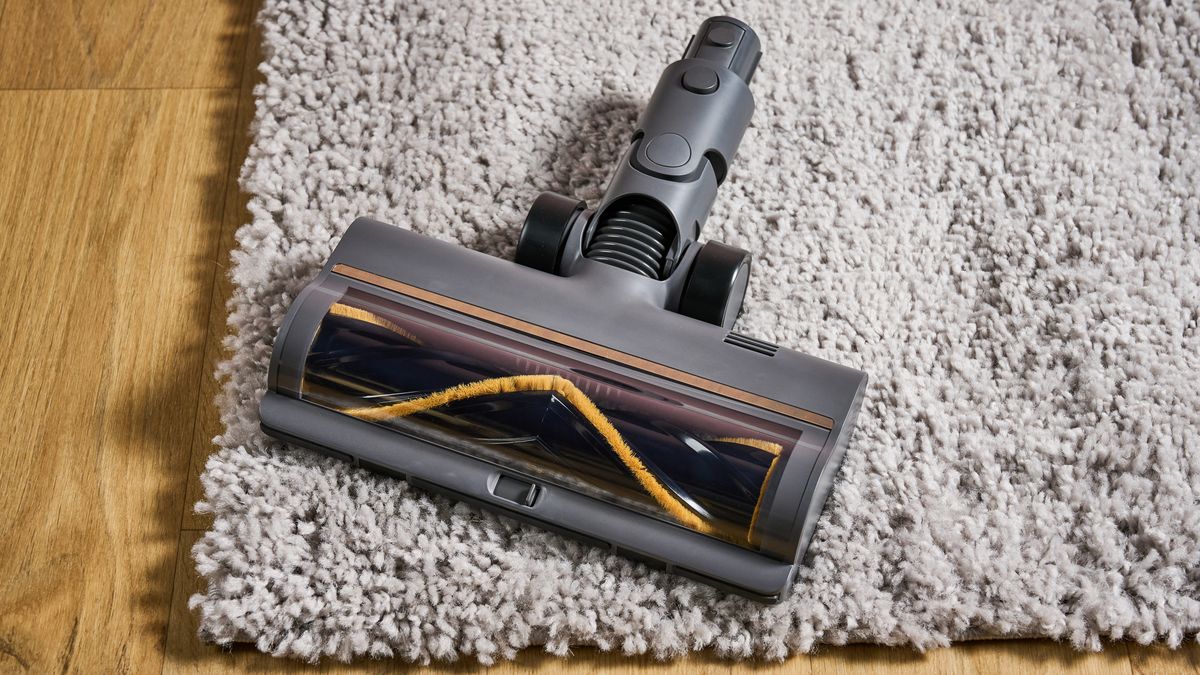
Teya Field, Product Manager at Henry, has the same suggestion: “Vacuums with floor tools with a turbo/rotating brush bar are ideal as they deliver turbo cleaning power to lift dirt and hair from deep pile carpets.”
Ankers echoes their sentiments, and points out that a floorhead with a beater bar is also ideal if there’s pet hair caught in the carpet. (This can be particularly stubborn to remove. We have a separate guide to the best vacuum cleaners for pet hair, plus an article exploring what to look for in a vacuum for pet hair, if you’re looking for tips.)
4. Automatic adjustment
For ultimate ease, look for a vacuum that can sense exactly what kind of floor it’s on, and adjust automatically, without you having to mess around with manual settings.
“Products with adjustable power by intelligent detection and adjustment are great for thick carpets,” says Mark Salmon, a Senior Channel Manager at Dreame.
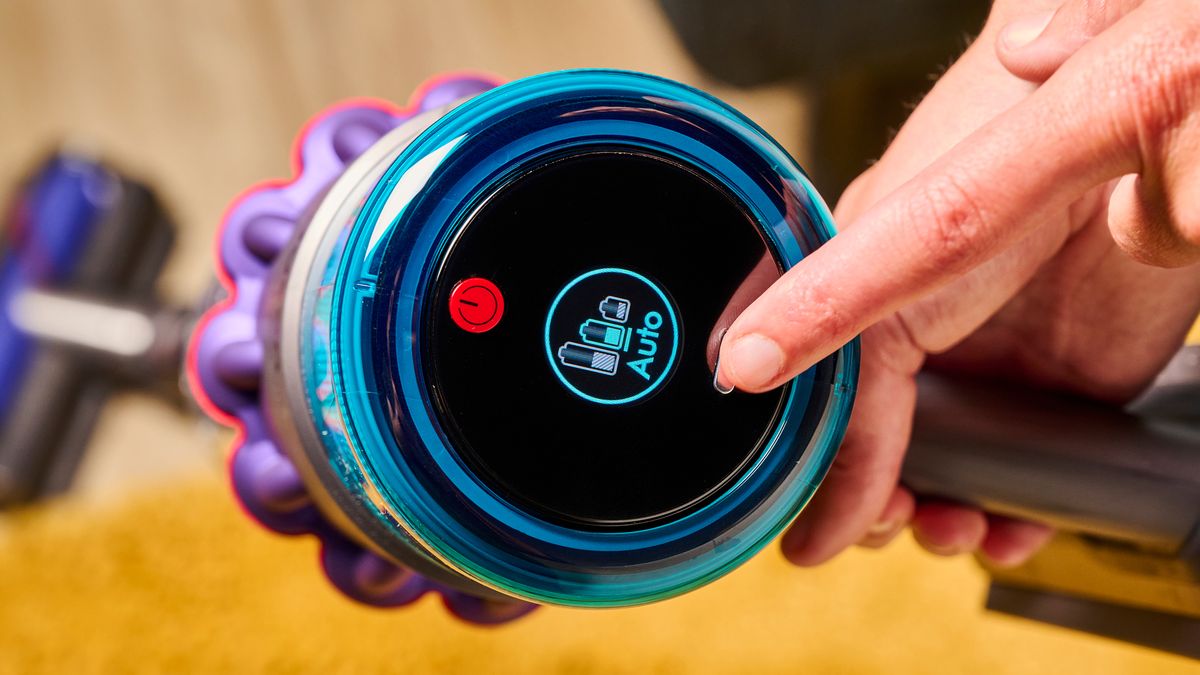
It’s a relatively new idea, but there are a number of models on the market that offer this capability, including the Dreame R20 (which is impressively affordable considering its high-end features), the Dyson V15 Detect, and Shark PowerDetect Cordless.
The Samsung Bespoke Jet AI Ultra actually uses AI powers to adjust suction and brushroll speed. This ensures a thorough clean without the floorhead getting ‘stuck’ due to too much suction.

